Women’s political rights in Egypt is a subject that is rarely discussed by the general public. While most ministries, governmental positions and political candidates are predominantly male, women who do participate are not given the same support and confidence that is usually given to men.
Although women in Egypt participate in civil societies, have roles in non-governmental institutions, rarely do they get the opportunity to implant their influence in politics. Recent studies have shown that the majority of Egyptians believe that women should have the same rights as men to run in the upcoming parliament; however, it is easier said than done. This is because very few Egyptians are genuinely interested in improving the political situation of women.
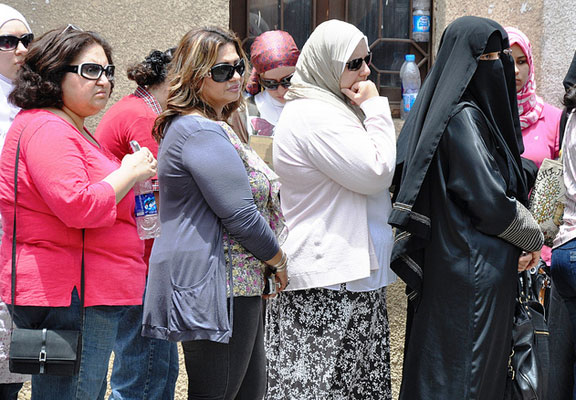
Nazra for Feminist Studies
In order to accurately explore this issue, I sat down with Salma el-Naqqash, director of the women’s political participation program at Nazra to discuss the political situation of women in Egypt, the challenges they are facing and their initiatives to solve them.
Nazra is a non-governmental organization that advocates for women’s rights. These rights include not being seen as inferior when running for seats in parliament and integrating women as active and pivotal members in the sectors they feel suits them.
Nazra works with women from all walks of life in Egypt to break through the shackles imposed on them by a society filled with taboos and restrictive norms. While abiding by the state’s laws, they do what they can to provide women with a brighter future.
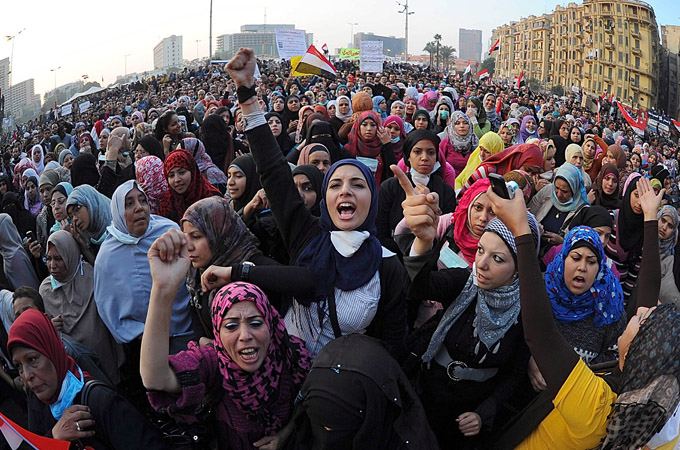
The Public Space in Egypt
Today, it is a growing challenge for women to galvanize support and secure finances in Egypt’s extremely competitive political sphere. Naqqash believes that this is down to a number of reasons.
“The political climate in Egypt is quite limiting and restrictive at the moment,” she said. “There is a complete shutdown on public space and there is not much area for political action given the legislative framework that is quite limiting.”
“Having an incomplete road map is problematic because we have been promised that we are going to elect a legitimate legislative body [upcoming parliament],” she added. “It does not make sense to have an executive body that is legislating.”
An immediate parliament was one of the main promises made by President Abdel Fattah al-Sisi upon being sworn into office over a year ago in June 2014. Parliamentary elections were initially set to be held on March 21 but the constituencies’ law drafted was declared unconstitutional by the Constitutional Court. Accordingly, al-Sisi ordered that the law be modified as soon as possible.
A postponed parliament means that Egypt has now been without a parliament since June 2012, giving al-Sisi legislative power for the foreseeable future.
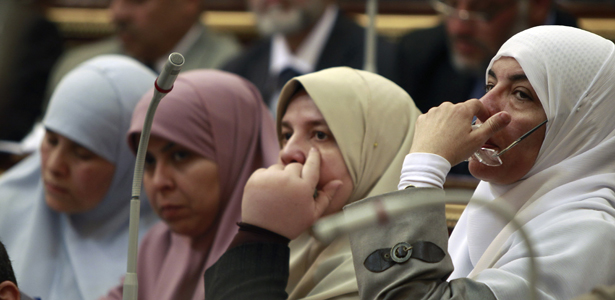
Meanwhile, civil society in Egypt has been facing an unprecedented crackdown from the regime. In just two months, over 360 NGOs have been shut down for charges of ties to the outlawed Muslim Brotherhood, according to Mada Masr.
Since its issuance in 2013, resorting to the protest law has been one of the prominent techniques exercised by the government to maintain its grip on the public space.
“Nazra works with a lot of women candidates and many of them were concerned with the demonstration law. They were so worried for their safety and security because they don’t know if their campaigning activities would be accepted or if it would fall under a violation of the protest law.”
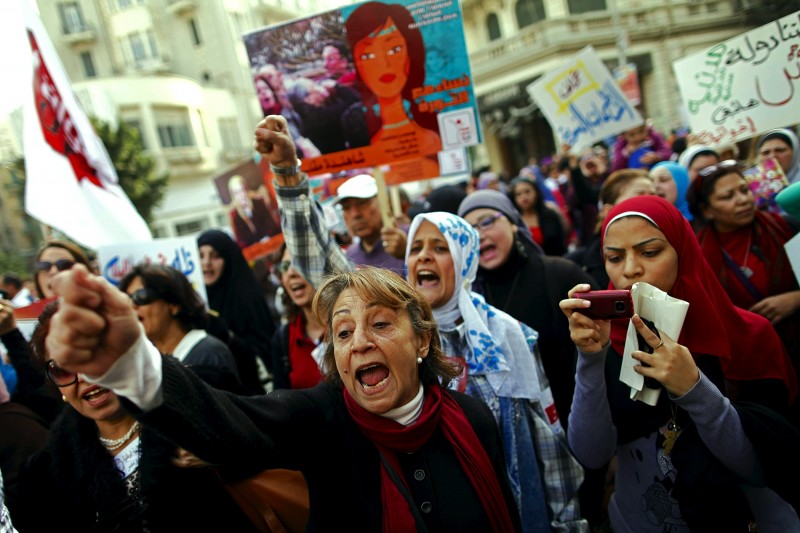
In terms of being a part of passing the laws for the parliament, Naqqash felt women were marginalized. “The process was not inclusive at all. We as civil society actors, political parties, public figures and politicians tried to communicate with the government to propose a proportional representational system and we were met with complete disregard. [It was] as if it doesn’t make sense to have that system just because they want to deny or prevent a certain political group from getting access to the parliament.”
Given how the public space is, at large, unsuitable for most people, it gets even harder for women who continuously face difficulties in practicing an effective role in politics. “There is not much room for women to engage on a political and activism level [in a violent public sphere],” Naqqash said.

Sexual Harassment and Political Empowerment
According to a survey released by the United Nations entity for Gender Equality, 99 percent of women in Egypt have admitted to being sexually harassed in one way or another. While 96 percent said that the harassment was physical, 95 percent experienced harassment through verbal abuse.
“You have seen violence against women rising every year in the past three years,” Naqqash stated. “If [the state] doesn’t have the tools to tackle sexual violence, then you’re really not giving any room for women to participate. These issues need to be tackled to improve the type of public space we have.”
However, the state has not been idle and has taken many initiatives to decrease sexual violence against women. Among these initiatives is the law issued in 2014 which states that any verbal, physical, behavioral or online form of sexual harassment is punishable by six months to five years in prison and a fine up to 50,000 L.E ($US 6383).
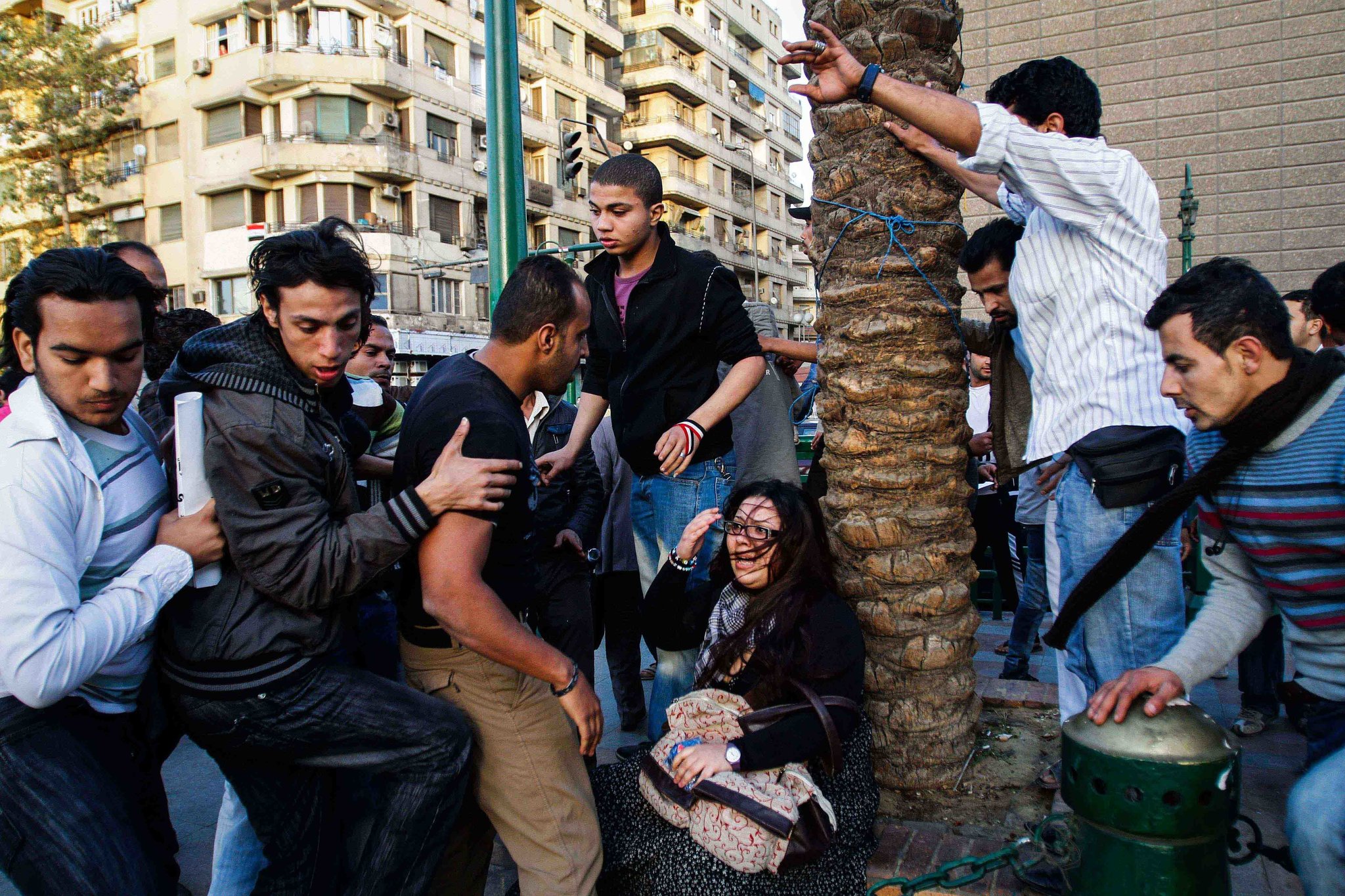
In an unprecedented approach by the Egyptian presidency, Sisi has acknowledged the growing number of sexual violence against women which is something no former president has ever conceded. On his inauguration, he visited a victim of sexual assault who was assaulted in Tahrir Square on the day his unanimous victory in the presidential elections was confirmed.
“Having a head of state who actually acknowledges the fact that sexual violence happens on the street and actually visits a victim of sexual assault on his inauguration day is a remarkable step,” Naqqash said. “Even though we disagree politically, this was definitely a landmark in itself. Also having an improved constitution that has passed last year, I think it is a huge step forward.”
There is a difference, according to Naqqash, between initiatives and their manifestations. “What remains underdeveloped is the translation of the constitutional entitlements fighting violence against women and fighting discrimination,” she said. “They need to be translated into policies and legislations to be implemented. With the national strategy to fight violence against women, there needs to be a mobilization of resources to make it happen on the ground.”
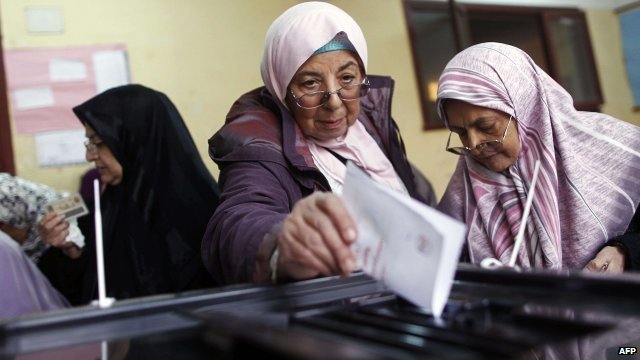
Parliament Quotas and Positive Discrimination
To solidify women’s presence and influence in the legislative process, the government has resorted to implementing quotas for women in parliaments. However, the way they are implemented is of huge importance according to Naqqash.
“When you had the quota system of 2010 with 64 seats for women, it was just an idea for tokenism,” she clarified. “It was just to fulfill [Egypt’s] international commitments; it was not about real implementation.”
Although Mubarak’s controversial 2010 parliament included more women compared to the 2011 post-revolution parliament, it was not proposed with a purpose to help women but simply as a ruse to adhere to Mubarak’s Western allies.
“The only people who benefited from the parliament, which was based on allocated seats, were Mubarak’s National Democratic Party and women Islamists who had the means and financial resources to actually participate in politics. It was not empowering to women whatsoever.”
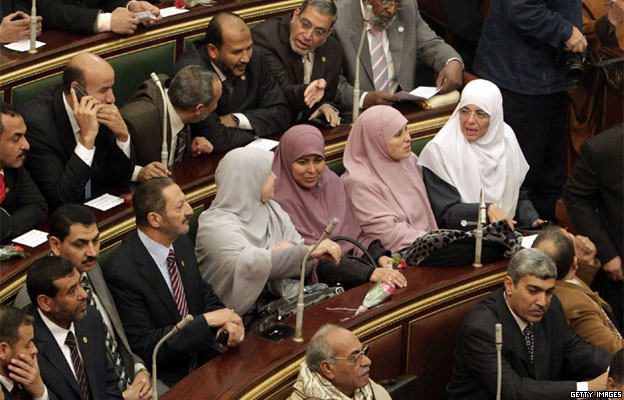
In the 2011 parliament, which was dominated by the Muslim Brotherhood and Islamists, the quota system was very weak and even counterproductive. “We barely had a quota,” Naqqash exclaimed. “There was a quota of one woman on each party list -which was nothing because the law did not put a clear statement around where to put the woman on the list. So of course, every party had women towards the bottom because they wanted to win more seats and knew the general public would never vote for a list that has women [as a priority].”
The presence of an efficient quota system would also serve to encourage women who are hesitant to enter the political sphere. “Women are generally intimidated [to participate in the political] because the system is not actually supportive of women,” said Naqqash. “When you have a single candidate system controlling the majority of the seats in the next parliament, it makes the experience completely inaccessible for women.”
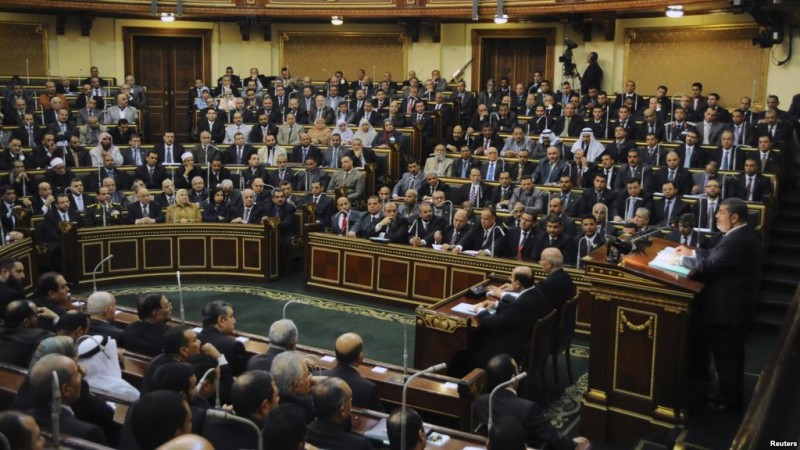
However, through a policy of positive discrimination, quotas for women would not only give them deserved seats but would serve to empower them, according to Naqqash.
“People think of a quota as a mono-sided system; it’s not true,” she stated. “When you have a quota system like the one implemented in Tunisia [where] there was a candidate quota for women on party lists, it’s a different story because you are creating an obligation for political parties to actually empower women and have them in the party lists.” Unlike the case in Egypt, Tunisia implemented a quota system that emphasized parity between genders and ensured that party lists are submitted on that basis.
This is an example of how positive discrimination can solidify women’s effective political participation.
“The philosophy of positive discrimination is not based on treating women as a minority. Nazra sees it as a form of reconciliation with women’s history because they have been discriminated against for such a long time and now is the time for paying them back.”
![“[Feminism] is not about imposing certain choices; it is about letting women have a choice.”](https://egyptianstreets.com/wp-content/uploads/2015/08/egypt-women_2731498b.jpg)
Women, Politics and Egyptian Society
“You must have laws that enforce having women in politics, but you have to get it both ways,” stressed Naqqash. “You have to also push people to rethink their own values towards women.”
It is true that Egypt has very rigid social stipulations commanding Egyptians’ day-to-day interactions and ventures. However, Naqqash is not calling for their complete eradication but simply to inform people of the necessity of having women as a pivotal influence on society.
“Through campaigns and grassroots action, we can influence the mentality of the general public in Egypt.”
Through her active participation in society, Naqqash has come to the observation that feminism in modern Egypt is largely misunderstood. “People read feminism in a very wrong manner,” she said. “It is not about imposing certain choices; it is about letting women have a choice.”
In that light, it is fair to note that Naqqash, Nazra and feminists in general are not demanding that women be involved in politics, or that anyone would be forced to do anything against their will. It is simply about allowing those with the desire to do so.





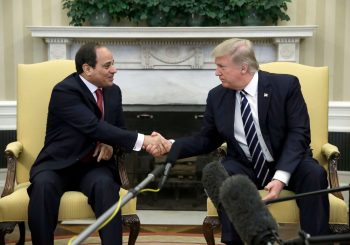
Comments (9)
Title
[…]please visit the web sites we follow, like this a single, as it represents our picks in the web[…]
xcn5bsn5bvtb7sdn5cnvbttecc
[…]The data talked about in the article are some of the best obtainable […]